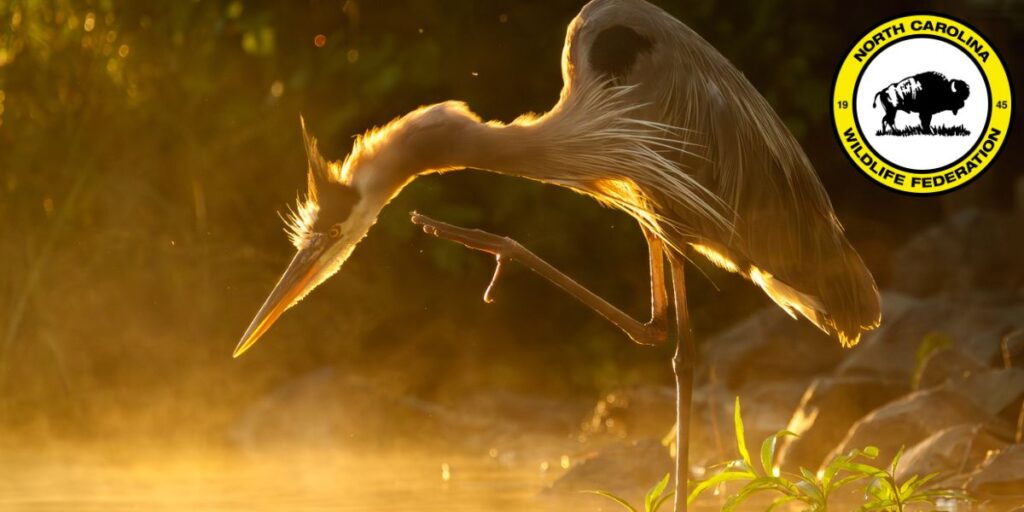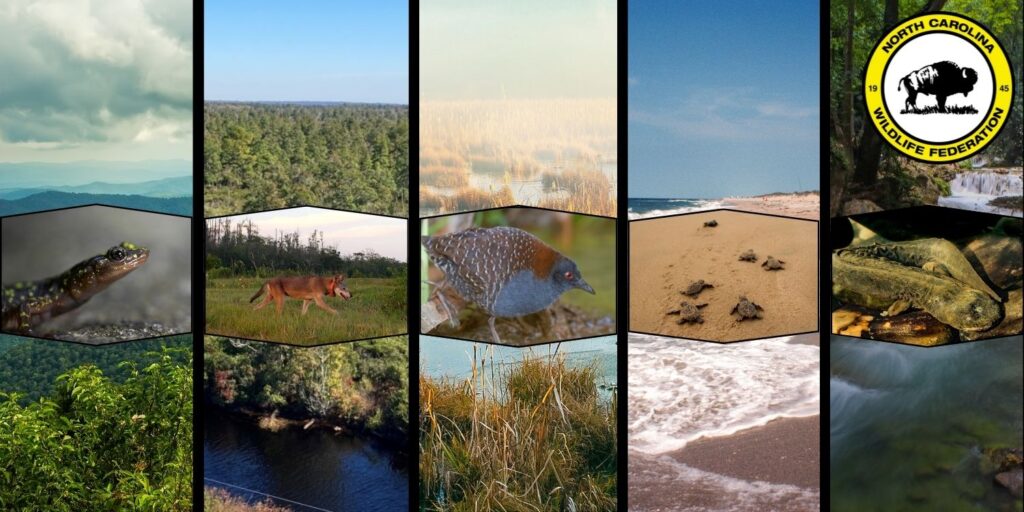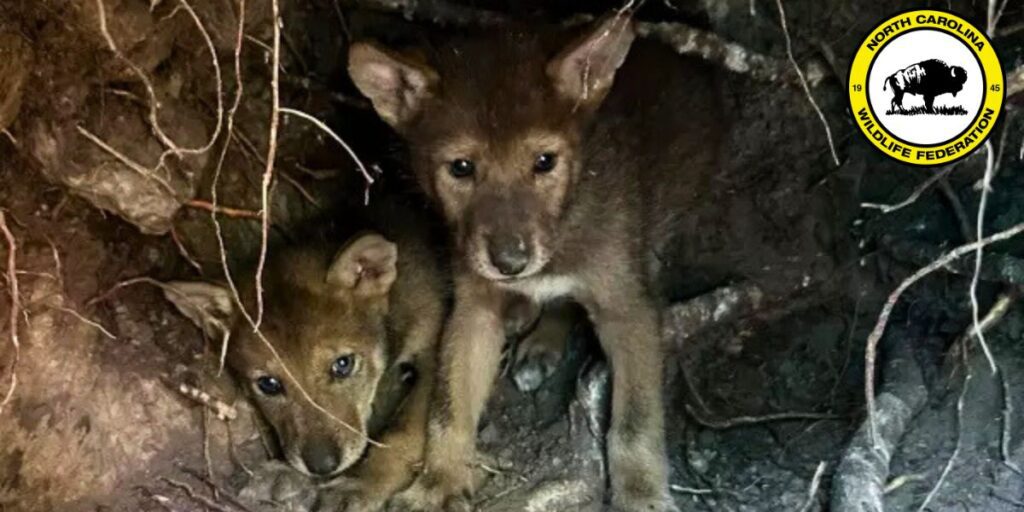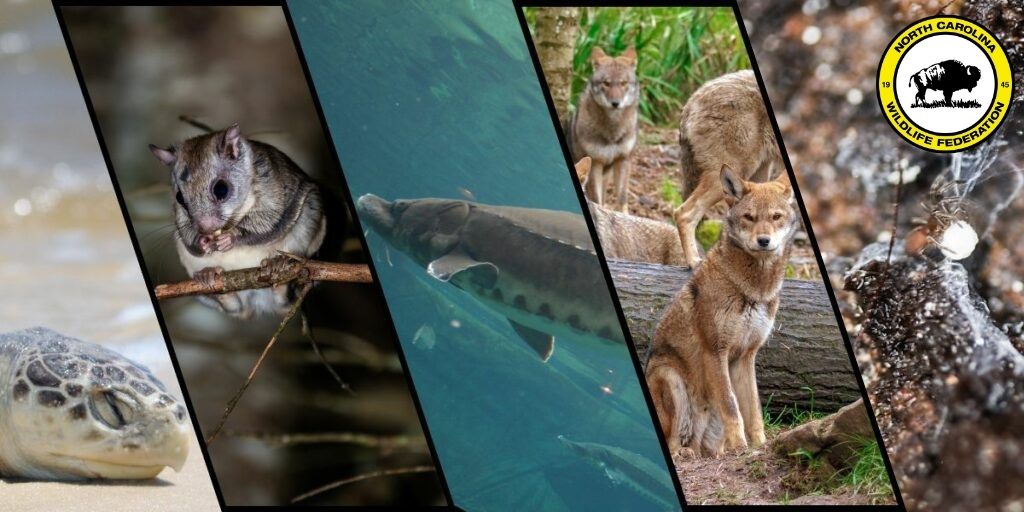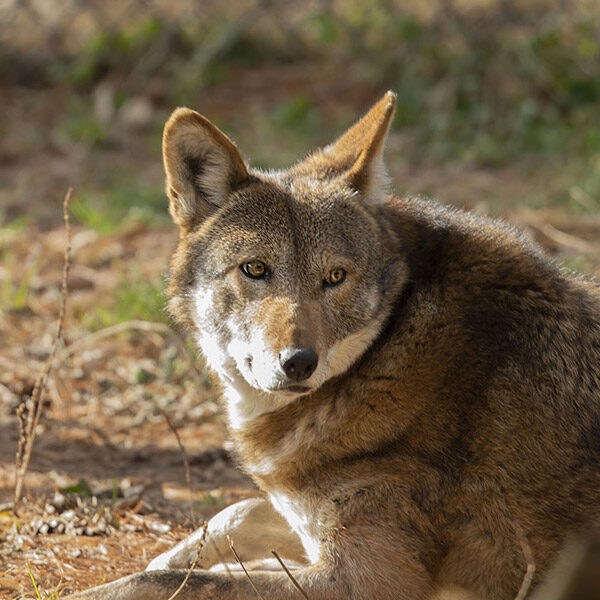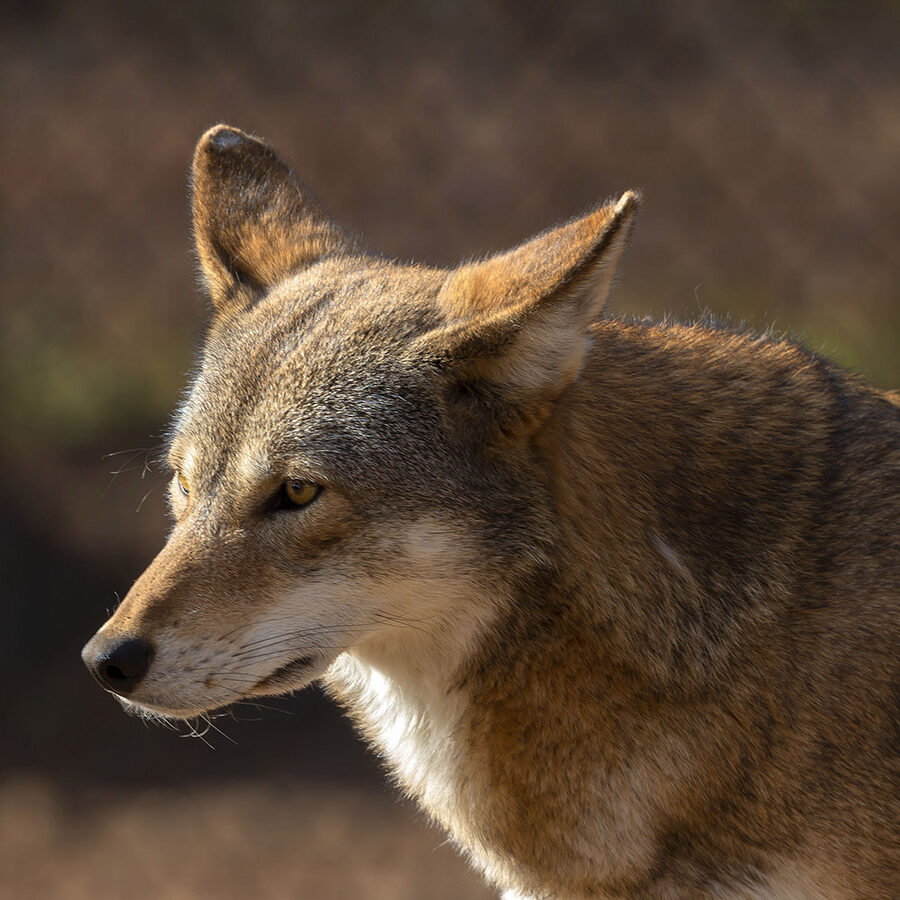Red Wolves in North Carolina
The Problem
Red Wolves are on the Brink of Extinction
Red wolves used to roam throughout the eastern seaboard from Pennsylvania to Florida and as far west as Texas. Today, North Carolina’s Albemarle Peninsula is home to the only confirmed wild red wolves in existence.
While red wolves play a vital and unique biological role within their ecosystem, the species has declined more than 85 percent in the last decade (2010-2020) from roughly 130 to 15 wolves.
Habitat loss, wolf-vehicle collisions, gunshot mortality and hybridization with coyotes threaten the future of red wolves in North Carolina. The U.S. Fish and Wildlife Service (USFWS) has made significant advances with its Red Wolf Recovery Program in recent years; however, there is still much work beyond the scope of current successes.
The Solution
Increase Awareness of Red Wolves and Resume Reintroductions in the Wild
Trapping and relocation efforts in Alligator River National Wildlife Refuge and Pocosin Lakes National Wildlife Refuge will help create new breeding pairs. Red wolf pup introduction will increase genetic diversity, while coyote sterilization will help reduce hybridization, and outreach and education will reduce conflict and grow awareness and acceptance of red wolves in the wild.
Through our partnerships with the USFWS, National Wildlife Refuge Association, National Wildlife Federation and private landowners, we’re working on the ground in Columbia, North Carolina. We operate the Red Wolf Education and Health Care Facility to provide educational materials and seminars on red wolves. It also houses a space to conduct regular health checks on wolves and is home to a pair of captive red wolves that you can see in person and watch on our 24-hour live web streaming red wolf cameras.
The Prey for the Pack program is open to private landowners in five northeastern North Carolina counties within the current population area of wild red wolves. Participants in the program will receive technical assistance and financial cost-share to help them implement habitat improvement projects on their property.
We’ve also improved the visitor services at Pocosin Lakes National Wildlife Refuge Visitor’s Center to grow interest in wildlife and habitat of the area, with a special focus on red wolves. In addition, we’ll continue to advocate for the natural resources of the Albemarle Peninsula at the local, state and federal levels to protect red wolf habitat and bring needed travel and tourism dollars to the “Yellowstone of the East.”
For red wolf questions or comments about the recovery program, call the red wolf hotline at 855-496-5837
Learn more
What We're Doing
Watch the Red Wolf Enclosure Cam
Wildlife and nature lovers from all over the world can now get a 24/7 glimpse into the life of a pair of captive red wolves, thanks to webcams installed at the Red Wolf Center in Columbia, N.C., located on Pocosin Lakes National Wildlife Refuge. The red wolves — 2292F born in 2019 and 2445M born in 2022 — are the facility’s first ever breeding pair. Viewers can watch them anytime as they move about and interact, snooze, sniff, eat and maybe even howl. The cameras also help staff and caretakers observe the wolves from a distance to continue learning about their behavior and needs. If you find the Red Wolves flirting with one another, make sure to get a screen grab of it and share it with the Red Wolf Education and Outreach Coordinator, Katerina Ramos, at katerina@ncwf.org.
Red Wolf Den Cam
Recent News
Upcoming Events
Related Video
How You Can Help
Join the Cause and Make an Impact
Help NCWF preserve wildlife and habitat for our children and future generations. Learn More.


